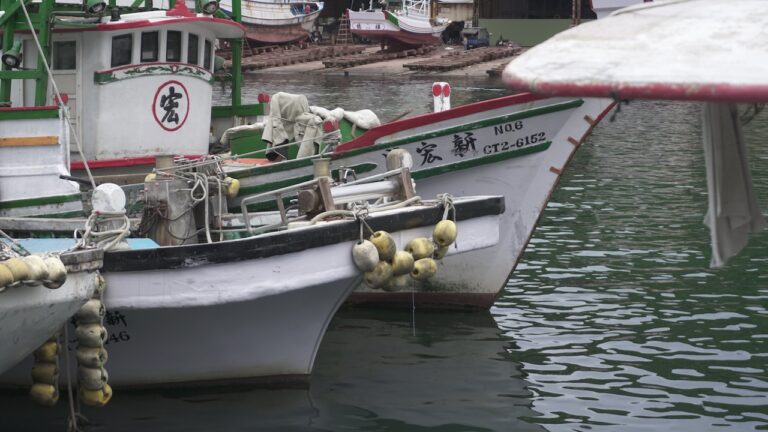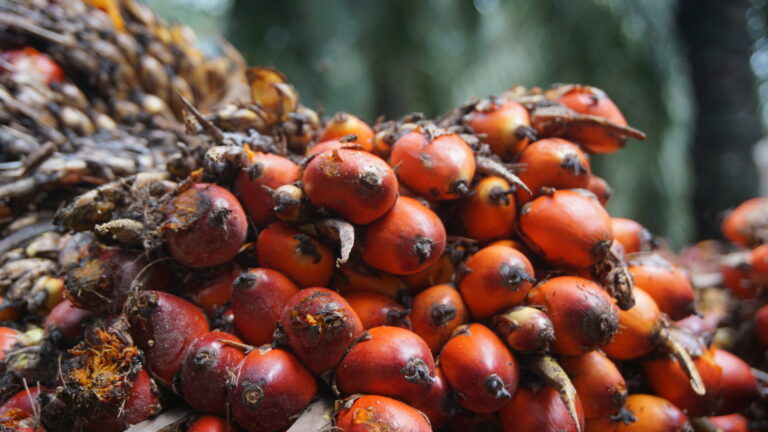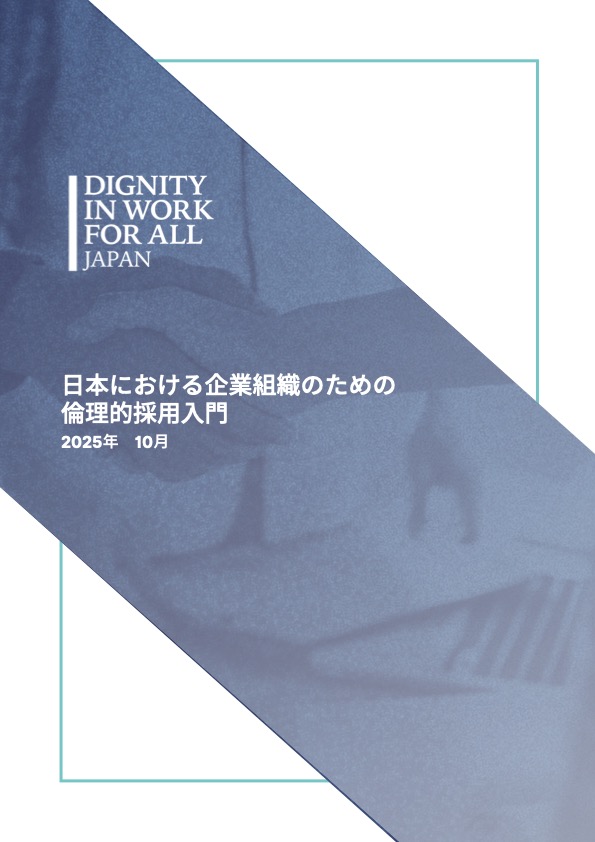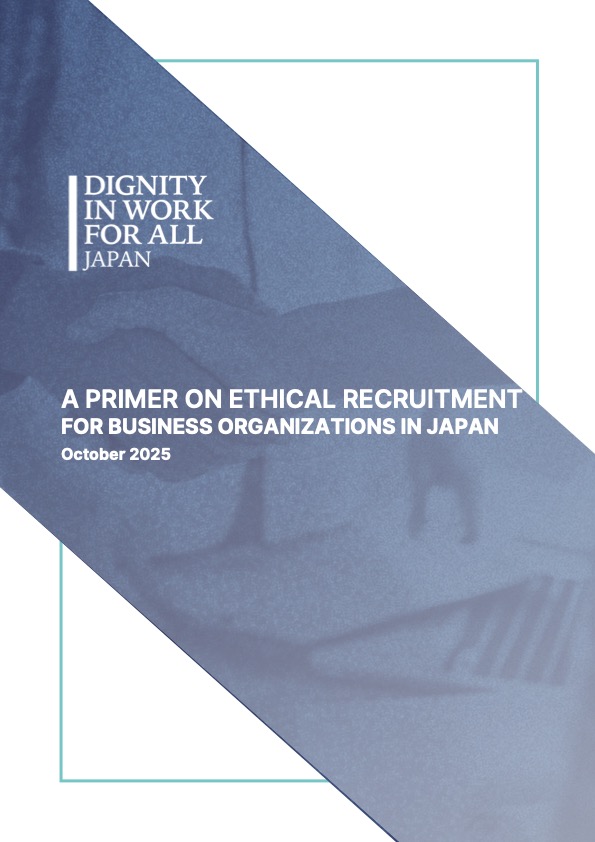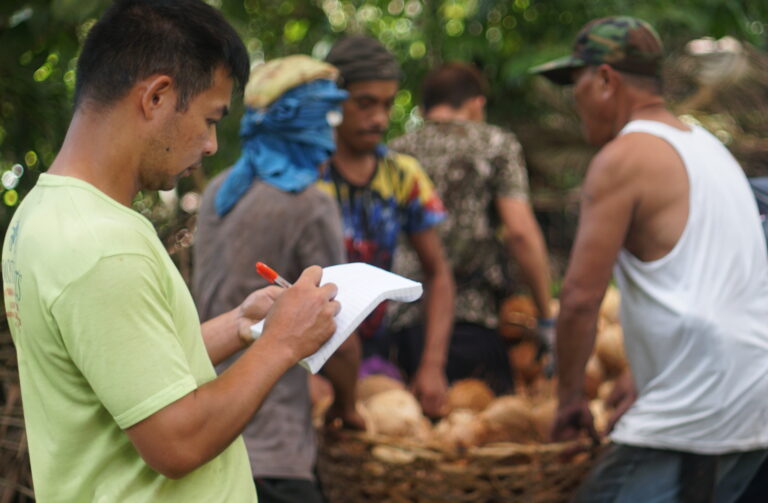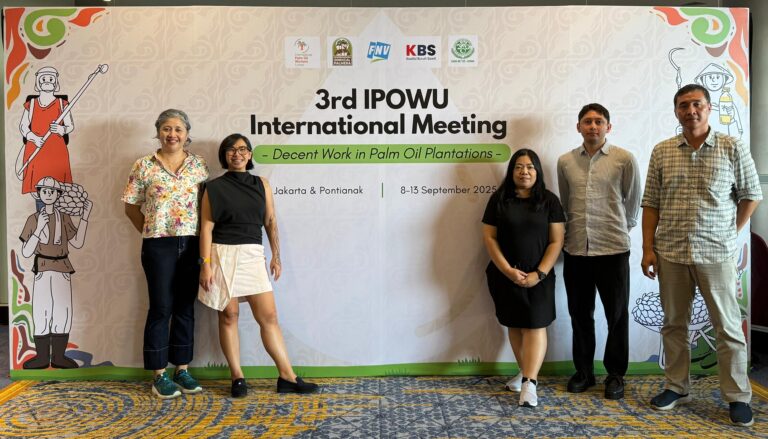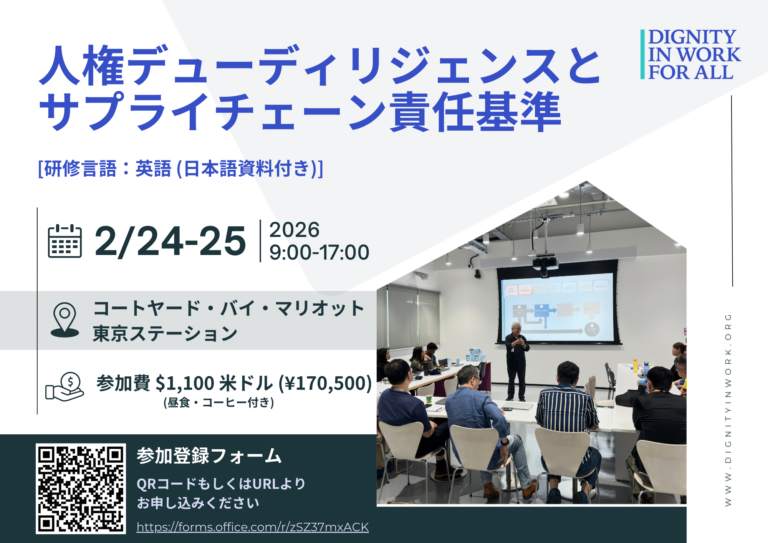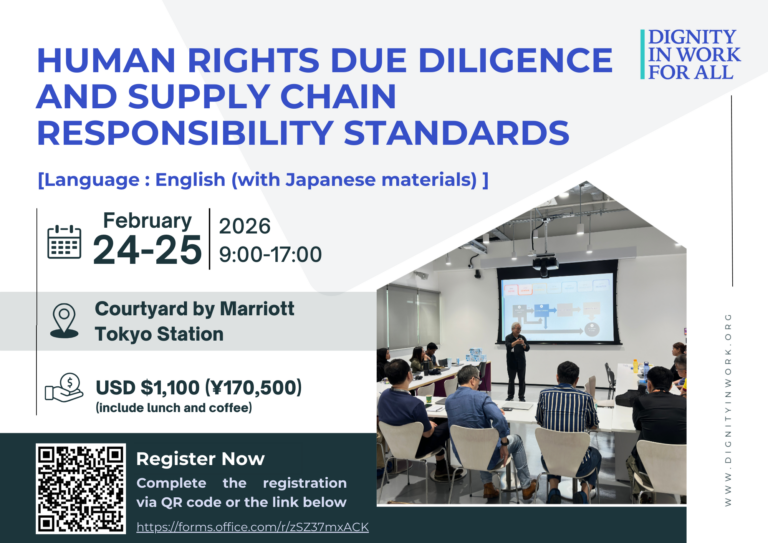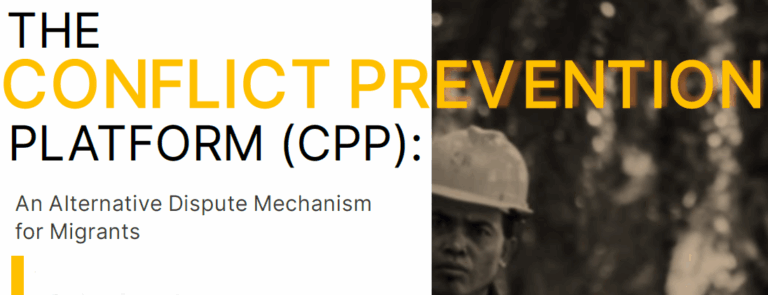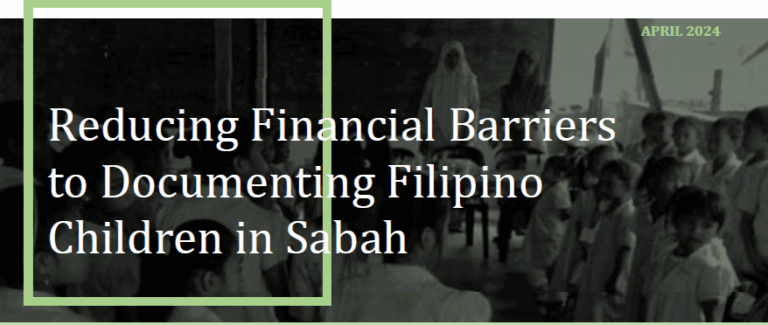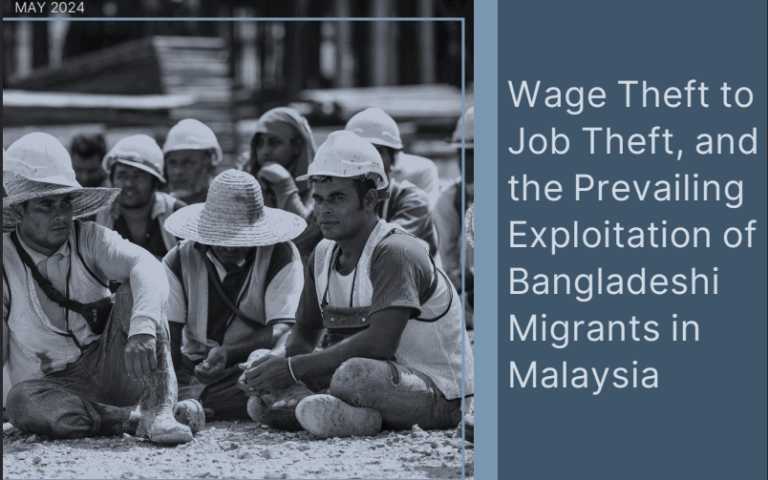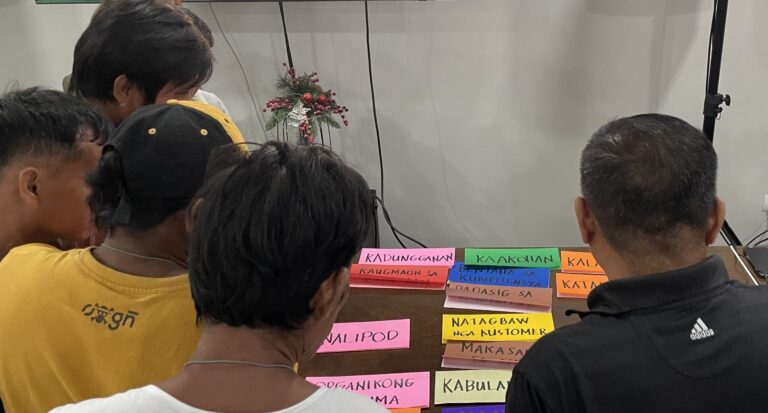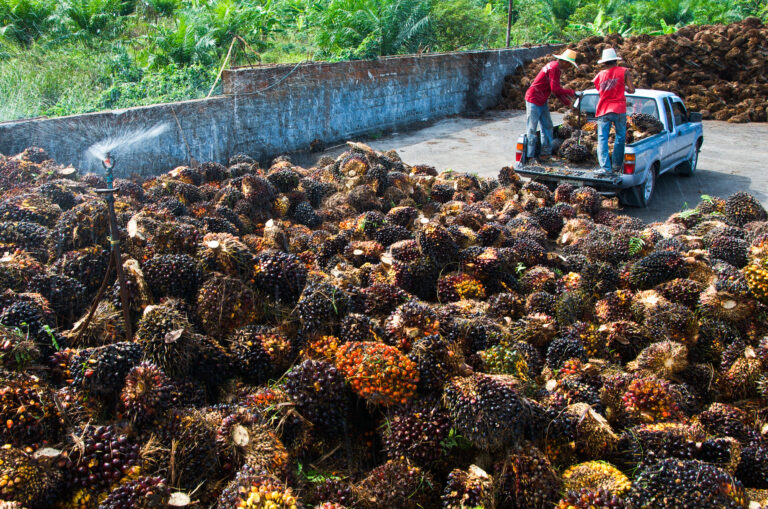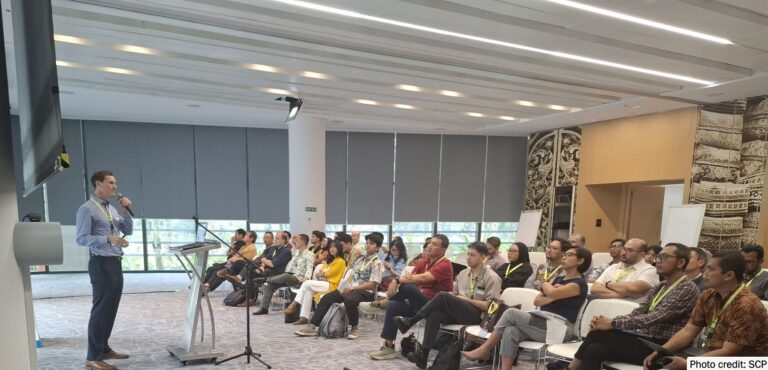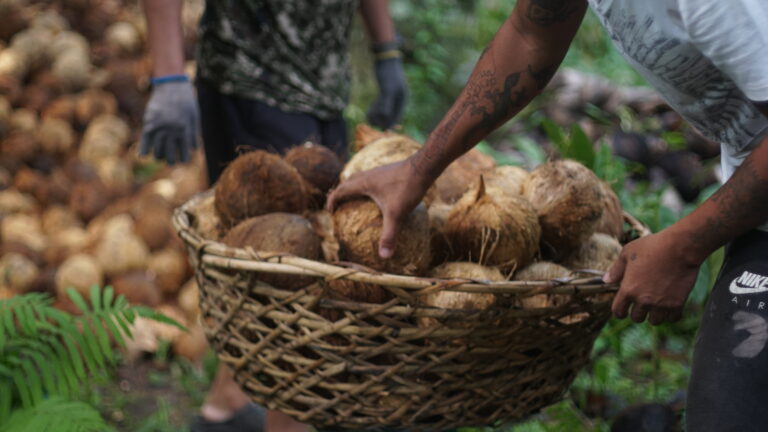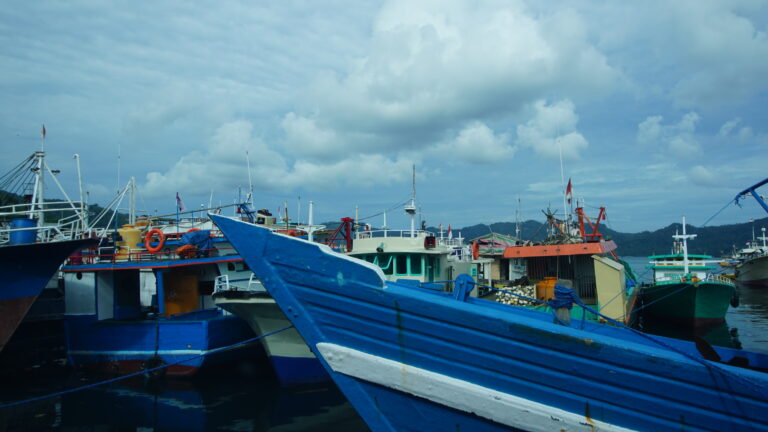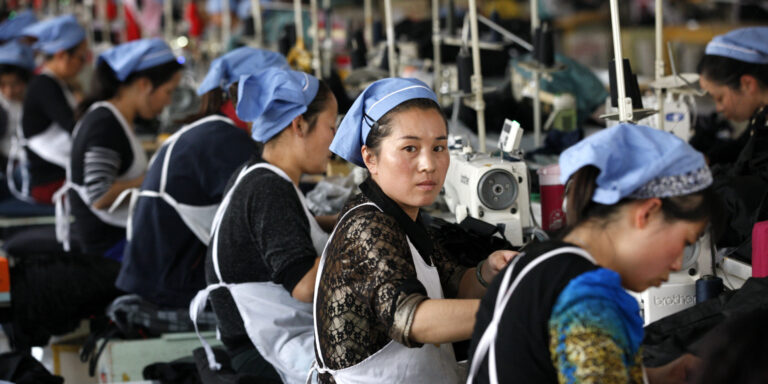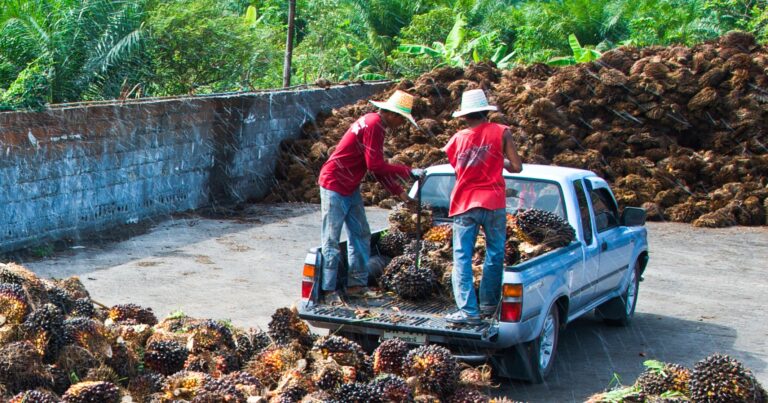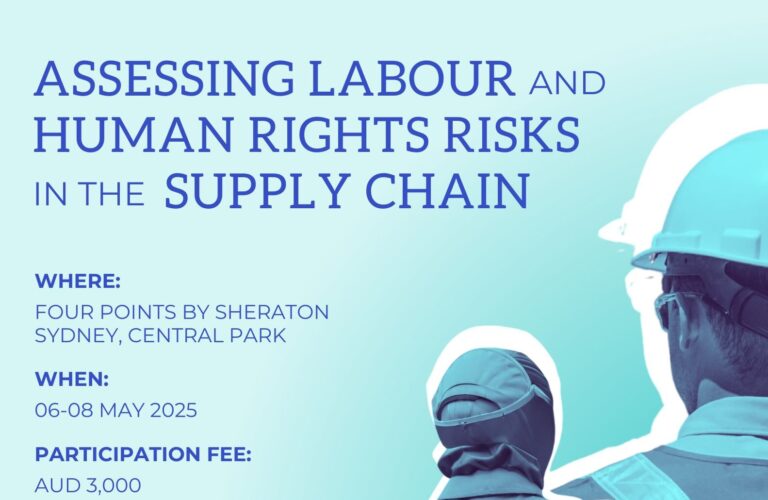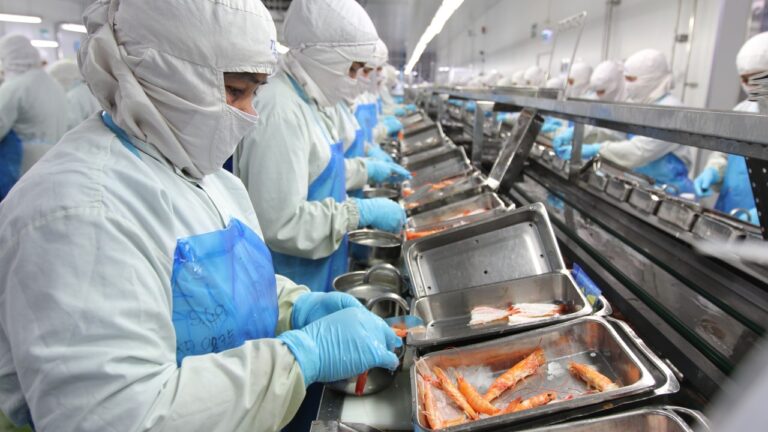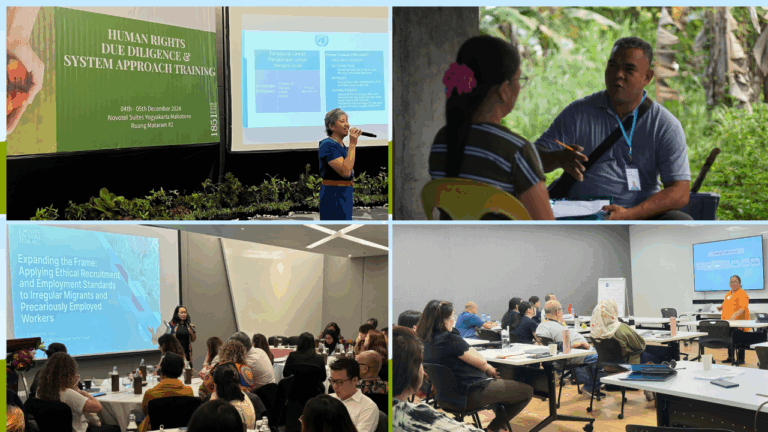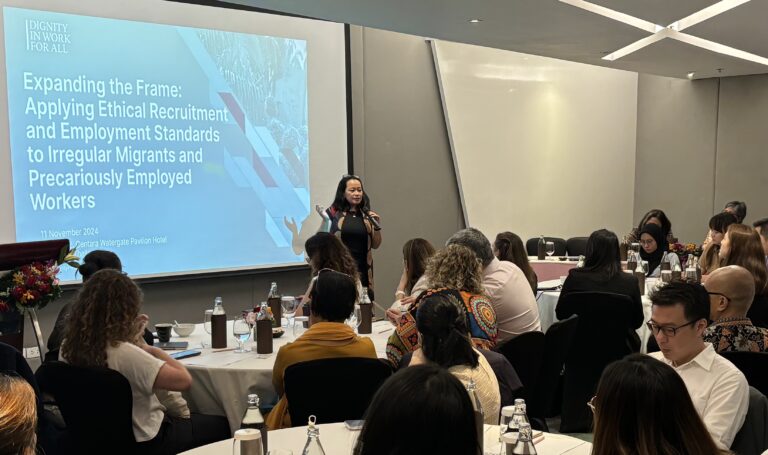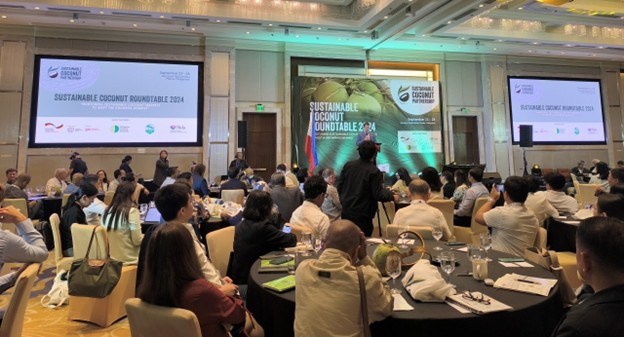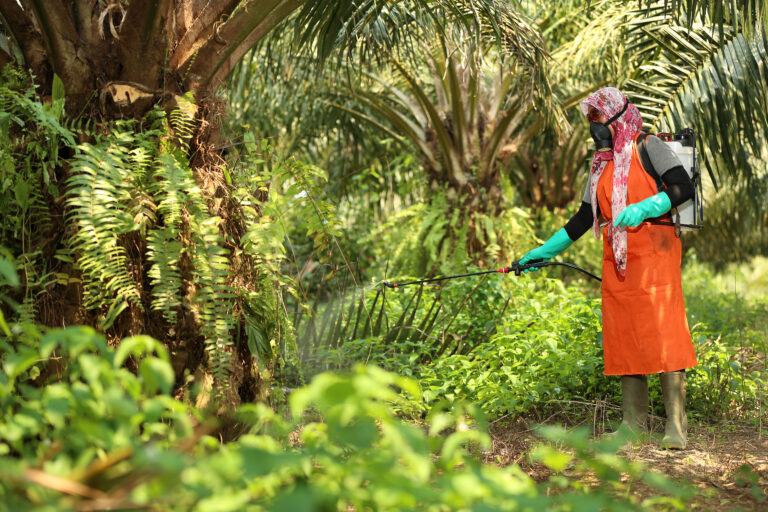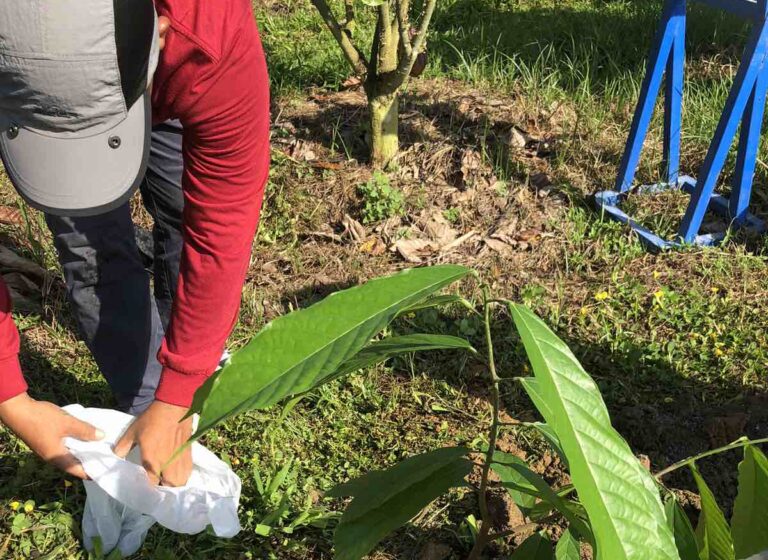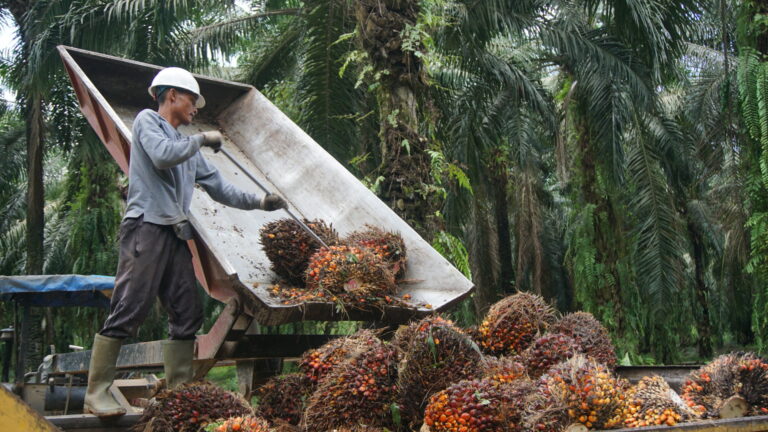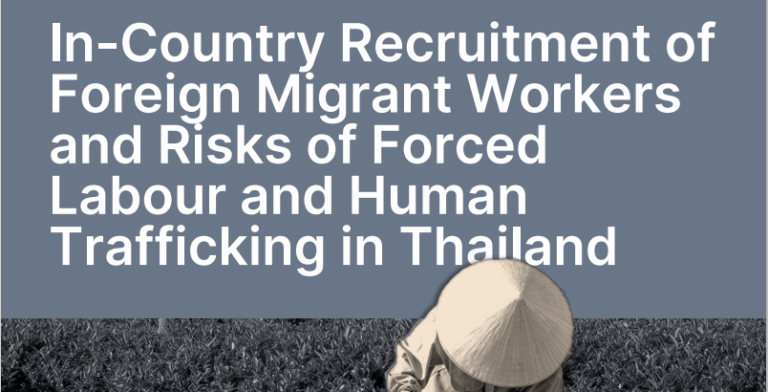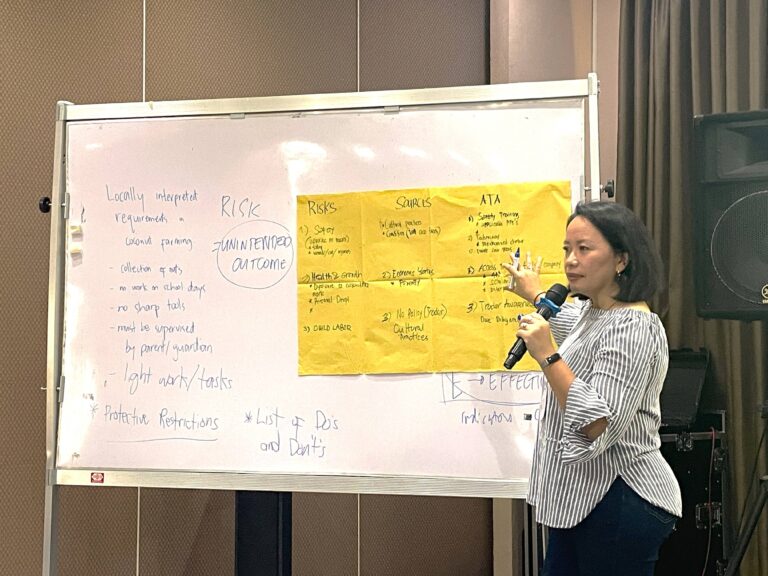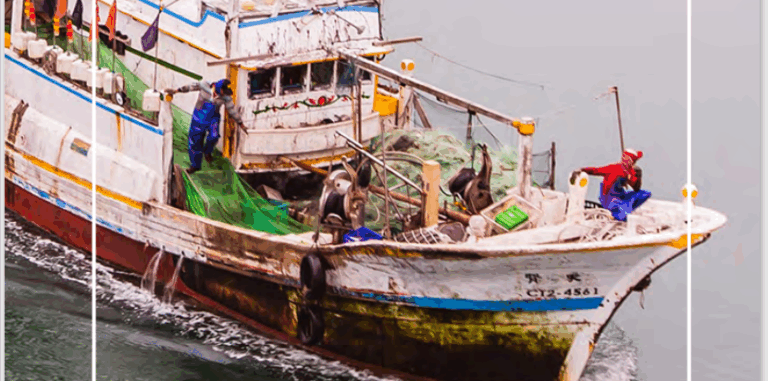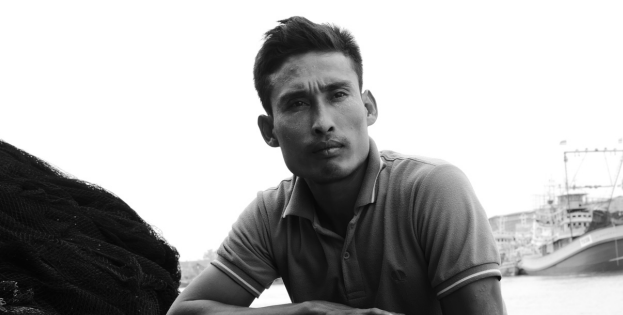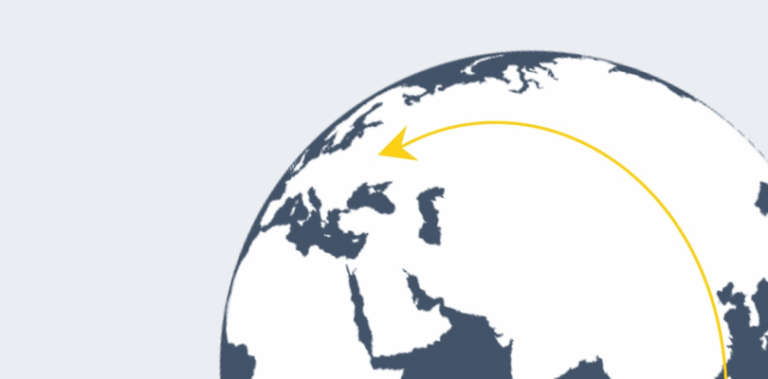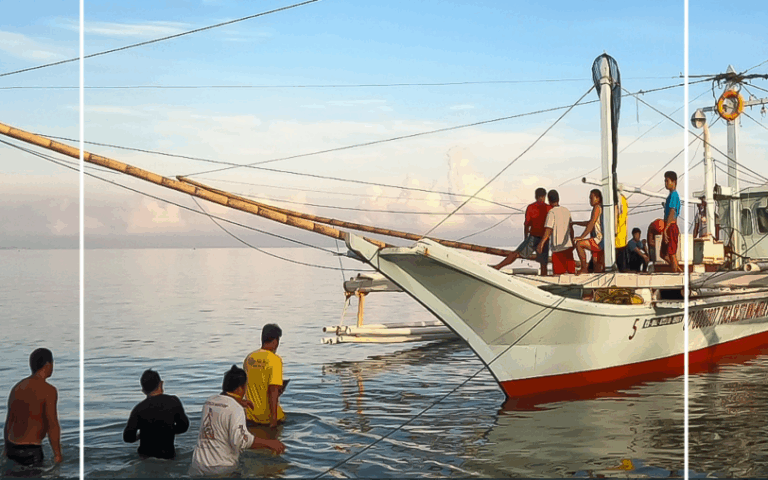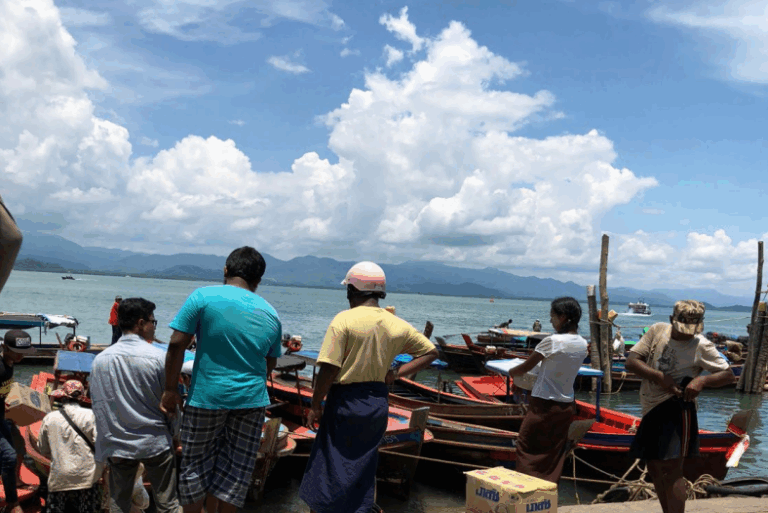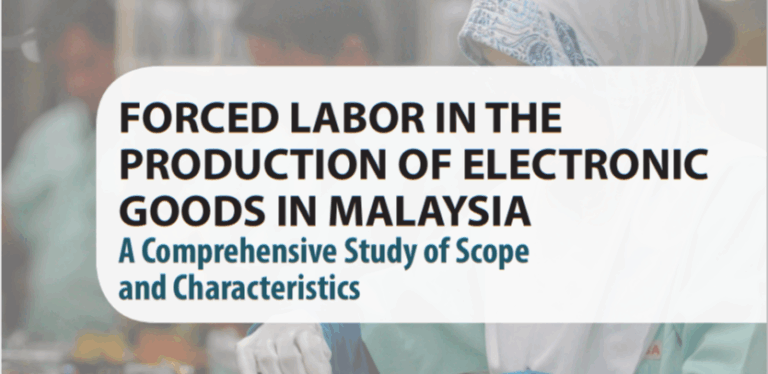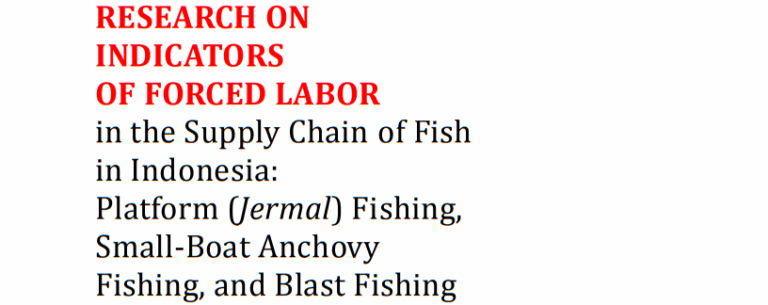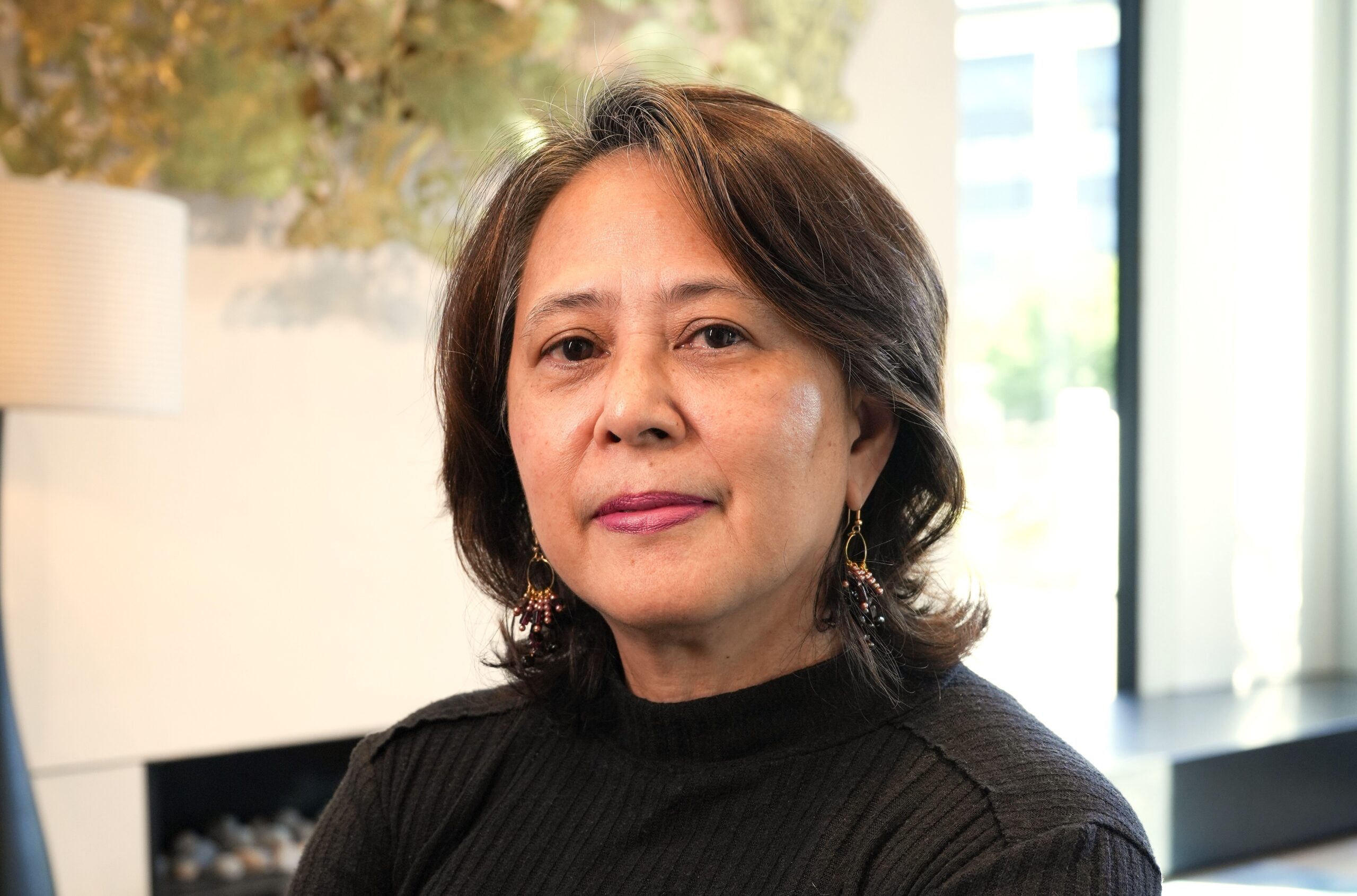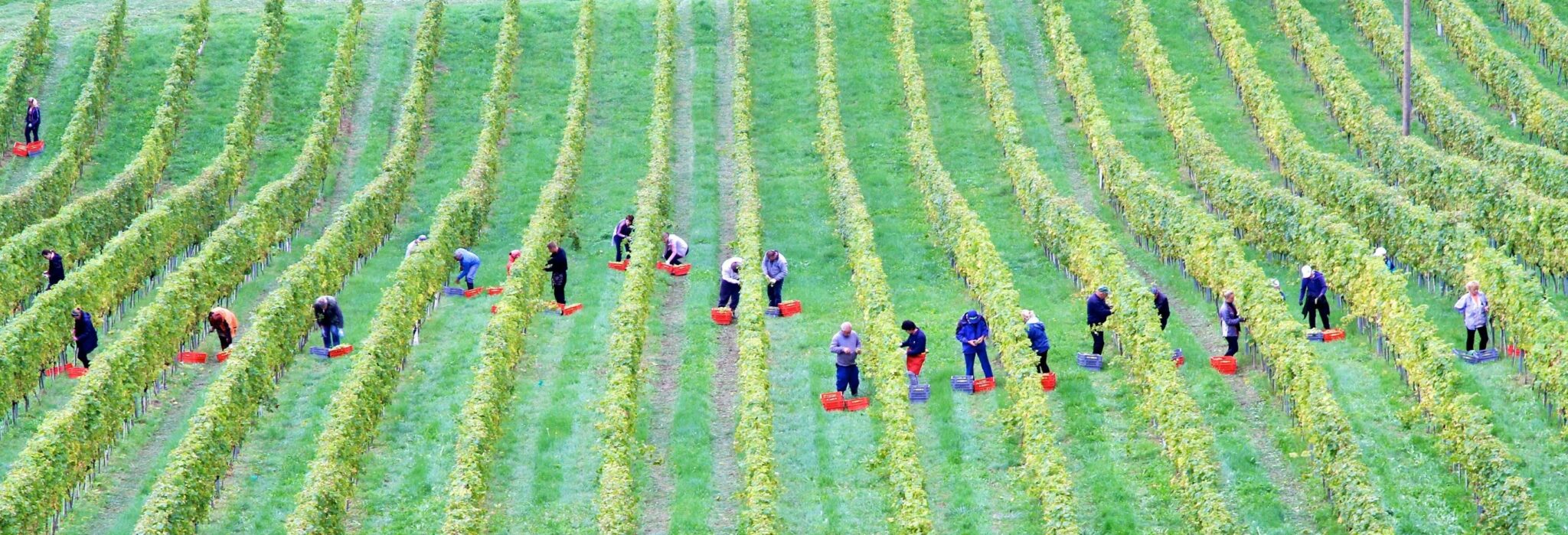
Research and Innovation
We design and implement independent, original research, and develop learning materials and tools to support innovative solutions to systemic labor issues.
Leveraging our grassroots access and strong networks, we provide a unique, bottom-up, objective view of labor conditions at the commodity, product, sector, and country level, mapping patterns of human trafficking and forced labor, child labor, precarious work and discrimination and other egregious and systemic issues.
Our research and investigations uncover the root causes and drivers of worker vulnerability. We shed light on pressing issues and provide evidence-based analysis of labor conditions in various geographies and sectors, and in areas of work like logistics, virtual workplaces, materials recycling, and the gig economy. We look into impacts of macro conditions such as climate change on labor and the movement of peoples.
Our in-depth and robust human rights impact assessments (HRIAs) guide companies in understanding what their salient human rights risks are; where and how these arise in their operations and supply chains; who are most impacted and what actions can be taken to mitigate risks and address actual adverse impacts. In analyzing issues and formulating strategies and solutions, we leverage our on-the-ground presence and long-standing relationships with local organizations and businesses.
We have supported companies in developing human rights due diligence (HRDD) programs that are anchored on empirical evidence and actionable findings, and we continue to help them go “beyond due diligence” with innovative programs (e.g., Gender Inclusivity in Plantations, Next Steps in Worker Voice and Worker Wellbeing, and Implementing Worker-driven Compliance) designed to sustain effective practices and make lasting positive impacts on people.
Some of our work:
World Fisheries Day, November 21, is a day to honor fisherfolk and workers in the seafood sector. DIWA has been engaged with partners and projects in the fishing industry for many years, highlighting the key challenges faced by workers, including migrant fishers on vessels.
With the RSPO RT in Kuala Lumpur this week, DIWA’s Melissa Villanueva reached out to Dillon Sarim, to get his views on the intersection of environmental issues and human rights in the palm oil industry.
本プライマーの内倫理的採用の枠組みや国際基準の整理、日本および主要送出国の規制の概要日本企業における好事例の紹介と、実務に役立つ 「EPP実装の7要素」
The Primer provides an overview of ethical recruitment frameworks and international standards, with reference to Japanese and migrant-sending country regulations as well as practical guidance for companies drawn from DIWA’s Seven Elements for Implementing the Employer Pays Principle.
This week, sustainability issues and prospects in the coconut sector gain the spotlight as the annual Sustainable Coconut Partnership (SCP) roundtable takes place in Manila. DIWA’s Melissa Villanueva sat down with Daryll Delgado, one of DIWA’s Senior Program Directors, to revisit past and ongoing programs in coconut as well as insights gained from her work in other raw commodity sectors.
Koalisi Buruh Sawit (KBS) and allied unions called on oil palm companies to fulfill the sustainability criteria and reiterated their call for a dedicated Bill on the Protection of Palm Oil Workers (RUPBS) in Indonesia, alongside the need for continued international cooperation and solidarity to tackle systemic issues facing palm oil workers worldwide.
このたび 「Dignity in Work for All Japan」 主催により、人権デューデリジェンス(HRDD)の一環として効果的なサプライヤー責任システムの構築に必要となる重要な知識を共有する研修を開催いたします。
Join Dignity in Work for All (DIWA) as we share essential knowledge needed to establish effective Supplier Responsibility Systems as part of Human Rights Due Diligence…
Co-developed with the Bio Community Initiative in Malaysia
Co-developed with Advocates for Non-Discrimination & Access to Knowledge (ANAK)
Co-developed with the North South Initiative in Malaysia
DIWA’s project manager for the FBK Consortium Coconut Project reflects on what we learned, encouraging coconut processors and buyers to use their influence in the supply chain to address real constraints and create space for local solutions.
Koalisi Buruh Sawit (KBS), berbasis di Indonesia, merupakan salah satu suara utama dalam mendorong kesetaraan dan martabat yang lebih besar bagi pekerja di industri kelapa sawit.
Koalisi Buruh Sawit (KBS; Palm Oil Labor Coalition, in English), based in Indonesia, is a leading voice in efforts towards greater equity and dignity for workers in the palm oil industry.
The challenges facing the coconut sector are significant—but so is the collective will to address them.
Louisse Borela, DIWA’s project manager for the Fund Against Child Labour (FBK) Consortium Coconut Project, shares a few reflections on the complexity of child labor in agriculture, highlighting the need to step up collaboration to tackle root causes together.
May 1, International Workers’ Day, is a celebration of the labor movement and its achievements that benefit society, including limits to working hours, health and…
This training supports organisations and individuals to better understand and implement labour and human rights standards, workplace compliance and supply chain due diligence. You will…
Women’s Month is a chance to recenter women’s experiences and raise issues that matter to women. DIWA’s experience in the field indicate that women face…
DIWA recognizes the importance of engaging critical stakeholders including recruitment agencies, who have significant roles to play in improving the lives of migrant workers. Our…
The unprecedented policy shift in Washington to pause US foreign aid for 90 days may impact on the world’s poor and our global effort to…
2024 was a milestone year for DIWA. Some highlights include: There’s a lot on the horizon for 2025, another milestone year for us as we…
Daryll Delgado, DIWA Senior Director for Research and Stakeholder Engagement, welcomes participants to the organization’s Expanding the Frame forum held in Bangkok, Thailand on 11…
DIWA and Seafood Legacy Sign an MoU Technical Partnership on Socially Responsible Seafood to advocate robust Human Rights Due Diligence in Japan TOKYO (Oct 9th,…
Dignity in Work for All highlighted the regulatory momentum for human rights due diligence in the recent Roundtable organized by the Sustainable Coconut Partnership (SCP)….
On this World Day Against Trafficking in Persons, DIWA would like to highlight the central importance of industry and national standards on ethical recruitment. As an…
On the occasion of the World Day Against Child Labour, we would like to highlight the continuing need for supply chain due diligence and multistakeholder…
New developments in the legal framework governing supply chain due diligence as a result of the CSDDD and Forced Labour Ban are particularly important for…
In-country recruitment has been a long-standing practice in Thailand, but the unregulated nature of this recruitment pathway poses significant risks of forced labour and human…
The Philippines is the second-largest producer of coconuts in the world, with majority of exports coming from the Mindanao region. Due to the nature of its cultivation and production, coconuts generally come from smallholder farms tilled by farmers and workers engaged in labor-intensive, seasonal, and informal work in the sector.
Toolkit: Implementing Ethical Standards in the In-Country Recruitment of Migrant Workers in Thailand
The Toolkit on Implementing Ethical Standards in the In-Country Recruitment of Migrant Workers in Thailand was developed to improve protections for workers through the implementation…
ชุดเครื่องมือนี้ ถูกจัดทำขึ้นเพื่อช่วยนายจ้างการนำมาตรฐานทางจริยธรรมไปใช้ในการจัดหาแรงงานข้ามชาติภายในประเทศไทย
Taiwan is one of the world’s five major seafood exporters and the primary flag state of the world’s longline tuna fleets. Recent research by non-governmental…
This case study aims to share insights of the impact of mechanization of a specific fishing vessel type – a medium-to-large sized purse seiner –…
Millions of people from the Philippines have migrated abroad for employment, seeking a better life and improved economic status for themselves and their families. Recruitment…
As the Philippines’ top seafood export, tuna plays a significant role in supporting the country’s economy and sustaining the livelihood of families in many of…
We conducted an exploratory study of the recruitment practices in Cambodia, Myanmar, and Lao PDR for workers destined for Thailand to map the critical intervention…
Malaysia’s electronics sector workforce includes hundreds of thousands of foreign migrant workers who come to Malaysia on the promise of a good salary and steady…
Our research in Indonesia was initially aimed to assess the circumstances surrounding forced labor on fishing platforms (jermals) in North Sumatra province. This research was…
Verité carried out research on the presence of indicators of forced labor in the production of ten goods in seven countries from 2008 through 2011….
Dignity in Work For All Migrant Fishers
World Fisheries Day, November 21, is a day to honor fisherfolk and workers in the seafood sector. DIWA has been engaged with partners and projects in the fishing industry for many years, highlighting the key challenges faced by workers, including migrant fishers on vessels.
Palm Oil: Bridging Environment and Human Rights
With the RSPO RT in Kuala Lumpur this week, DIWA’s Melissa Villanueva reached out to Dillon Sarim, to get his views on the intersection of environmental issues and human rights in the palm oil industry.
Labor Risks in the Philippine Coconut Sector
This week, sustainability issues and prospects in the coconut sector gain the spotlight as the annual Sustainable Coconut Partnership (SCP) roundtable takes place in Manila. DIWA’s Melissa Villanueva sat down with Daryll Delgado, one of DIWA’s Senior Program Directors, to revisit past and ongoing programs in coconut as well as insights gained from her work in other raw commodity sectors.
IPOWU Meeting: Decent Work in Palm Oil Plantations
Koalisi Buruh Sawit (KBS) and allied unions called on oil palm companies to fulfill the sustainability criteria and reiterated their call for a dedicated Bill on the Protection of Palm Oil Workers (RUPBS) in Indonesia, alongside the need for continued international cooperation and solidarity to tackle systemic issues facing palm oil workers worldwide.
Training (JPN): Upholding Human Rights in the Supply Chain
このたび 「Dignity in Work for All Japan」 主催により、人権デューデリジェンス(HRDD)の一環として効果的なサプライヤー責任システムの構築に必要となる重要な知識を共有する研修を開催いたします。
Training (ENG): Upholding Human Rights in the Supply Chain
Join Dignity in Work for All (DIWA) as we share essential knowledge needed to establish effective Supplier Responsibility Systems as part of Human Rights Due Diligence…
Supplier Engagement in the Philippine Coconut Sector
DIWA’s project manager for the FBK Consortium Coconut Project reflects on what we learned, encouraging coconut processors and buyers to use their influence in the supply chain to address real constraints and create space for local solutions.
Membangun suara pekerja: Sorotan dari Indonesia (Bagian 2 dari 2)
Koalisi Buruh Sawit (KBS), berbasis di Indonesia, merupakan salah satu suara utama dalam mendorong kesetaraan dan martabat yang lebih besar bagi pekerja di industri kelapa sawit.
Building worker voice: Spotlight on Indonesia (Part 2 of 2)
Koalisi Buruh Sawit (KBS; Palm Oil Labor Coalition, in English), based in Indonesia, is a leading voice in efforts towards greater equity and dignity for workers in the palm oil industry.
Multistakeholder engagement for Responsible rejuvenation in coconut: Indonesia
The challenges facing the coconut sector are significant—but so is the collective will to address them.
Toolkit: Implementing Ethical Standards in the In-Country Recruitment of Migrant Workers in Thailand
The Toolkit on Implementing Ethical Standards in the In-Country Recruitment of Migrant Workers in Thailand was developed to improve protections for workers through the implementation…
Read Moreชุดสื่อเรียนรู้: การนำมาตรฐานทางจริยธรรมมาใช้ในการสรรหาแรงงานข้ามชาติภายในประเทศไทย
ชุดเครื่องมือนี้ ถูกจัดทำขึ้นเพื่อช่วยนายจ้างการนำมาตรฐานทางจริยธรรมไปใช้ในการจัดหาแรงงานข้ามชาติภายในประเทศไทย
Read More日本における企業組織のための倫理的採用入門
本プライマーの内倫理的採用の枠組みや国際基準の整理、日本および主要送出国の規制の概要日本企業における好事例の紹介と、実務に役立つ 「EPP実装の7要素」
Read MorePrimer on Ethical Recruitment in Japan
The Primer provides an overview of ethical recruitment frameworks and international standards, with reference to Japanese and migrant-sending country regulations as well as practical guidance for companies drawn from DIWA’s Seven Elements for Implementing the Employer Pays Principle.
Read MoreThe Conflict Prevention platform (CPP)
Co-developed with the Bio Community Initiative in Malaysia
Read MoreReducing Financial Barriers to Documenting Filipino Children in Sabah
Co-developed with Advocates for Non-Discrimination & Access to Knowledge (ANAK)
Read MoreWage Theft to Job Theft: The Prevailing Exploitation of Bangladeshi Migrants in Malaysia
Co-developed with the North South Initiative in Malaysia
Read MoreIn-Country Recruitment of Foreign Migrant Workers and Risks of Forced Labour and Human Trafficking in Thailand
In-country recruitment has been a long-standing practice in Thailand, but the unregulated nature of this recruitment pathway poses significant risks of forced labour and human…
Read MoreRecruitment and Employment Experiences of Filipino Migrant Fishers in Taiwan’s Tuna Fishing Sector: An Exploratory Study
Taiwan is one of the world’s five major seafood exporters and the primary flag state of the world’s longline tuna fleets. Recent research by non-governmental…
Read MoreMechanization of Thai Purse Seiners: A Business Case Study to Improve Working and Living Conditions
This case study aims to share insights of the impact of mechanization of a specific fishing vessel type – a medium-to-large sized purse seiner –…
Read More